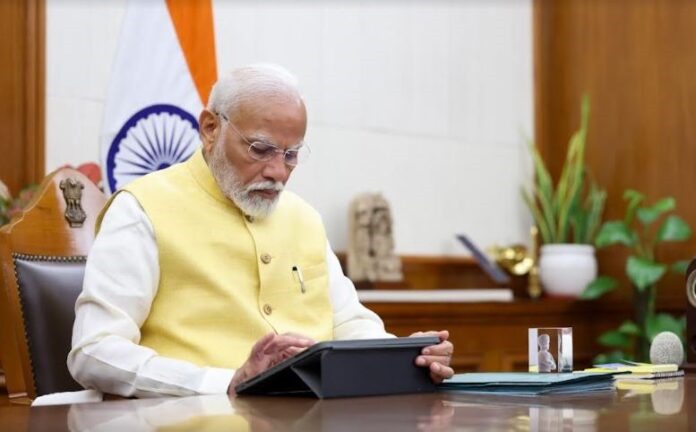CNN Central News & Network–ITDC India Epress/ITDC News Bhopal: The total estimated cost of the projects is approximately ₹24,657 crore, and they are expected to be completed by 2030-31. The Cabinet Committee on Economic Affairs, chaired by the Prime Minister, has approved eight projects of the Ministry of Railways with a total estimated cost of around ₹24,657 crore.
These proposals for new lines will provide direct connectivity and improve mobility, resulting in increased efficiency and service reliability for Indian Railways. These projects align with the Prime Minister’s vision of a new India, which aims to make the people of this region “self-reliant” through comprehensive development, thereby increasing their employment/self-employment opportunities.

These projects are a result of the PM-Gati Shakti National Master Plan for multi-modal connectivity, made possible through integrated planning, and will provide seamless connectivity for the movement of people, goods, and services.
The eight projects, covering 14 districts across seven states—Odisha, Maharashtra, Andhra Pradesh, Jharkhand, Bihar, Telangana, and West Bengal—will extend the existing Indian Railways network by 900 kilometers.
Along with these projects, 64 new stations will be constructed, providing better connectivity to six aspirational districts (East Singhbhum, Bhadradri Kothagudem, Malkangiri, Kalahandi, Nabarangpur, Rayagada), around 510 villages, and a population of about 4 million.
The UNESCO World Heritage site, Ajanta Caves, will be connected to the Indian Railways network, facilitating access for a large number of tourists.
These routes are essential for the transportation of agricultural products, fertilizers, coal, iron ore, steel, cement, bauxite, limestone, aluminum powder, granite, ballast, containers, and other goods. The capacity enhancement works will result in an additional freight movement of 143 MTPA (Million Tons Per Annum). Railways, being an environmentally friendly and energy-efficient mode of transport, will help in achieving climate goals, reducing the country’s logistics cost, decreasing oil imports (by 322 million liters), and lowering carbon emissions (by 0.87 million tons), which is equivalent to planting 35 million trees.







